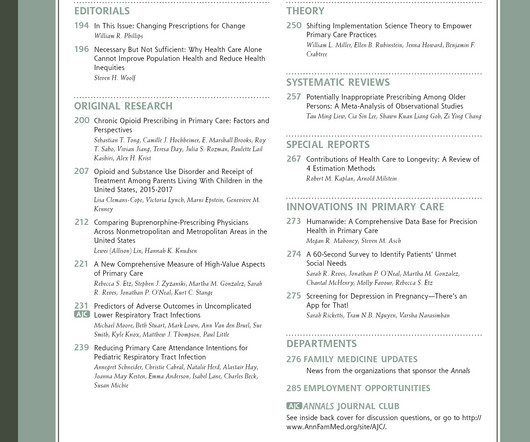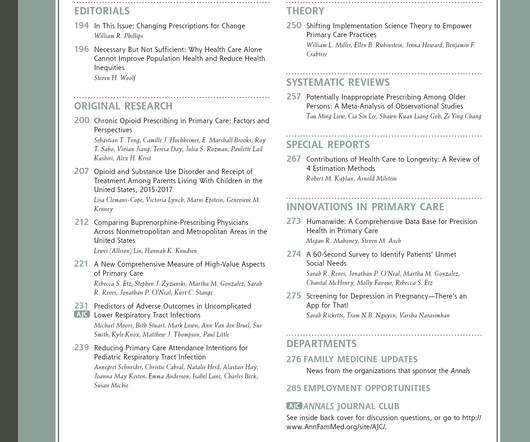Adoption, implementation, and impact of a Diabetes Navigator program based in primary care [Diabetes and endocrine disease]
Annals of Family Medicine
NOVEMBER 20, 2024
Context: Patients with diabetes who receive structured and integrated care have better control and outcomes; however, care may shift between multiple settings making coordination challenging. Outcome Measures: Number of patients engaged, resulting referrals, Navigator time per patient, and hemoglobin A1c measures across 2-years.
















Let's personalize your content